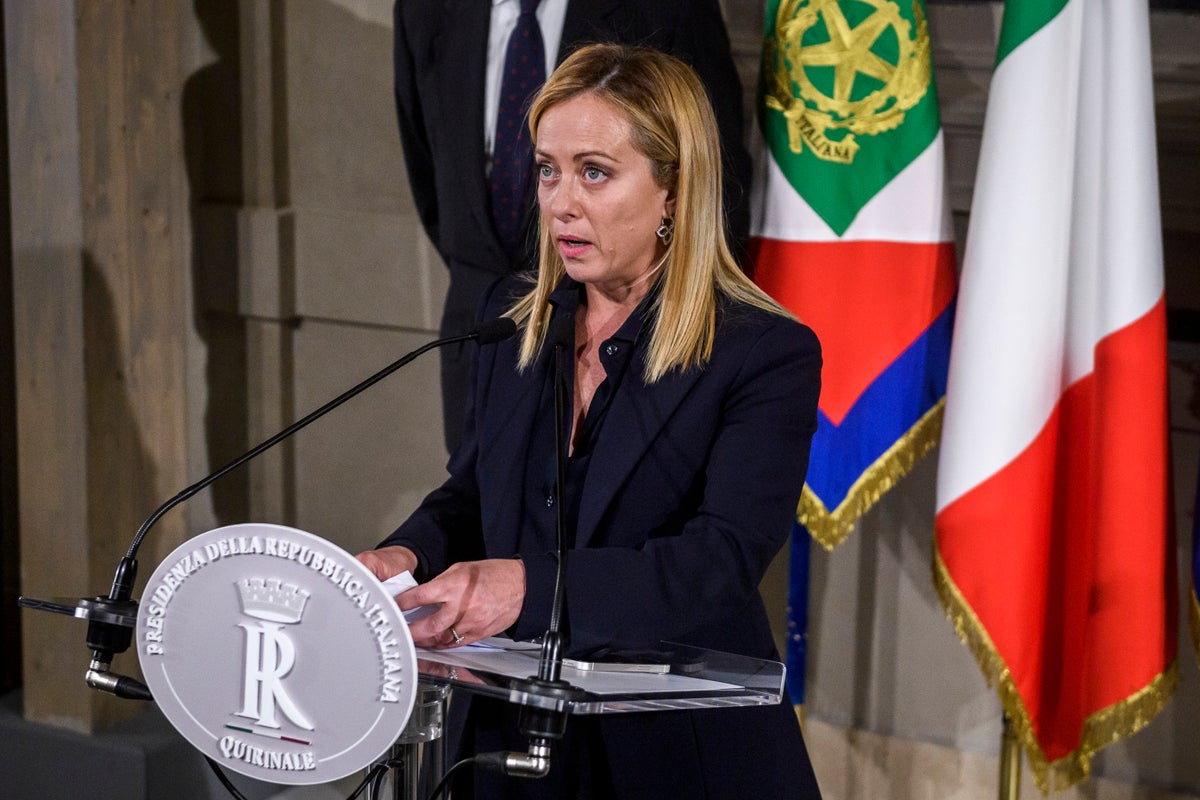
Giorgia Meloni has been sworn in as the new prime minister of Italy, becoming the country’s first female leader and heading its first far-right government since the Second World War.
The leader of the nationalist Brothers of Italy party took her oath of office at the presidential palace on Saturday alongside her cabinet team, which she had named a day earlier.
“I swear to be faithful to the republic,” the 45-year-old said under the chandeliers of a frescoed chamber. She shook hands with president Sergio Mattarella at the oath-taking ceremony for her government – Italy’s 12th this century.
Ms Meloni also pledged to act “in the exclusive interests of the nation”.
The pledge was signed by the far-right leader and countersigned by President Mattarella.
Two dozen ministers – among them only six women – from Ms Meloni’s cabinet followed suit and swore oaths to assume their roles. After days of coalition negotiations, it was revealed on Friday that five ministries each have been given to Ms Meloni’s junior partners, the League and Forza Italia, while nine will go to her own Brothers of Italy.
The remaining posts will be taken up by technocrats representing no party.
It comes after Brothers of Italy came out on top in Italy’s national election last month, with Ms Meloni’s government propped up by parties led by former prime minister Silvio Berlusconi and former interior minister Matteo Salvini.
The new prime minister is expected to head her first cabinet meeting on Sunday.
Ms Meloni’s government faces a range of daunting and immediate challenges, with a looming recession and soaring energy costs as a result of the war in Ukraine.
In the month since the election, her government-in-waiting has already faced controversy over its stance on the conflict, with Ms Meloni’s stated support for the embattled country undermined by comments from Mr Berlusconi. He has privately blamed Kyiv for Russia’s invasion, and says he has exchanged gifts and “sweet letters” with old ally Vladimir Putin.
Ms Meloni has sought to reassure European capitals that Rome will continue to support the Western effort to oppose Moscow’s invasion.







